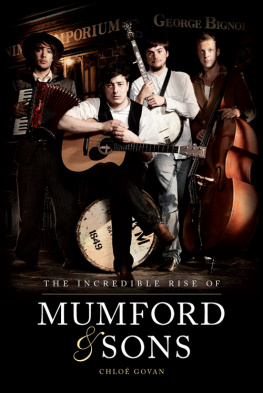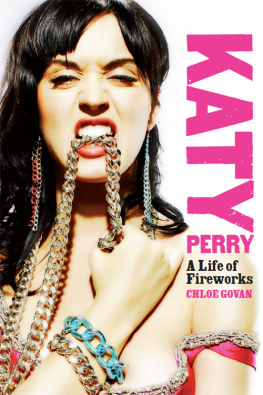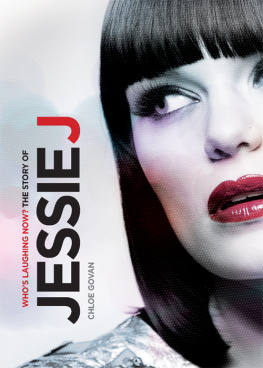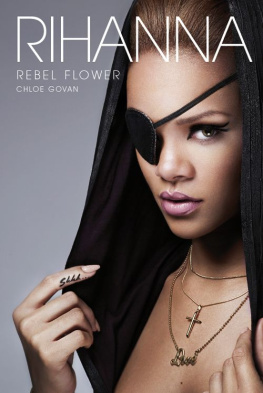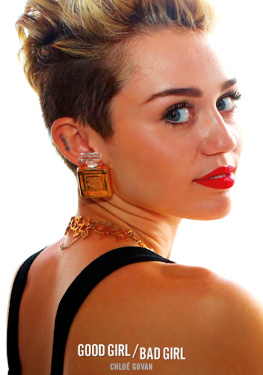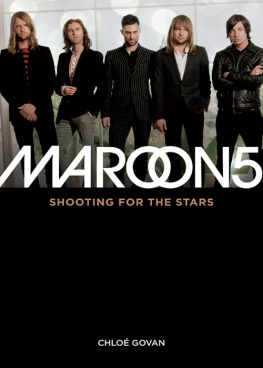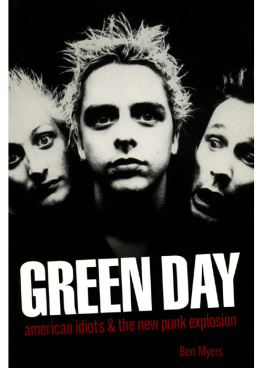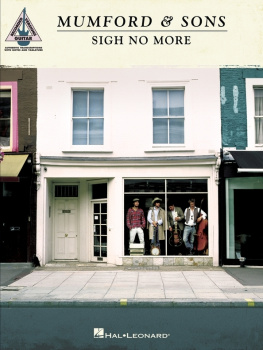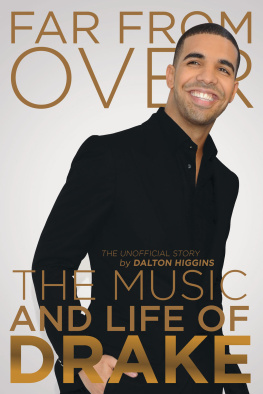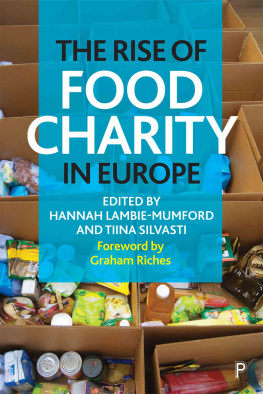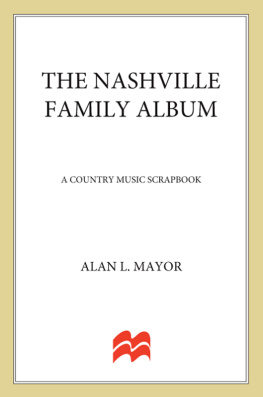
Copyright 2013 Omnibus Press
This edition 2013 Omnibus Press
(A Division of Music Sales Limited, 14-15 Berners Street, London W1T 3LJ)
Cover designed by Fresh Lemon
Picture research by Jacqui Black
EISBN: 978-0-85712-857-7
The Author hereby asserts his / her right to be identified as the author of this work in accordance with Sections 77 to 78 of the Copyright, Designs and Patents Act 1988.
All rights reserved. No part of this book may be reproduced in any form or by any electronic or mechanical means, including information storage and retrieval systems, without permission in writing from the publisher, except by a reviewer who may quote brief passages.
Every effort has been made to trace the copyright holders of the photographs in this book, but one or two were unreachable. We would be grateful if the photographers concerned would contact us.
A catalogue record of this book is available from the British Library.
For all your musical needs including instruments, sheet music and accessories, visit www.musicroom.com
For on-demand sheet music straight to your home printer, visit www.sheetmusicdirect.com
Introduction
The Grammys? Were glad we didnt leave our hearts there
Marcus Mumford
N o modern awards ceremony would be complete without a dose of excessive sex appeal and eccentric, almost farcical sartorialism and the 2011 Grammys was no exception.
Lady Gaga, a fine example of the latter, was carried in by an entourage of scantily clad assistants, crouched inside a giant semi-opaque egg with its own oxygen tank. Meanwhile one helper assured bemused onlookers that the pop diva was in an embryonic state, and wouldnt be coming alive until the performance began. And come alive she did, ripping herself from her oddly fashioned womb to break into song and start playing an organ decorated with disembodied heads.
In the outrageousness stakes, the performance was unparalleled. Yet some young singers equally hungry for attention were engaging in a very different game. Baby-faced Justin Bieber, for example who at just 17 already boasted a fortune of almost 70 million was playing the teenage heart-throb card. When he took to the stage that night, he was preceded by the deafening screams of his female followers a sound so loud that it threatened to drown him out.
Like Justin and Gaga, the biggest players of the night were invariably either sexy or strange and they were all celebrities. It took just one look at the set list to demonstrate that. Katy Perry was selling the teenage dream, Usher was flaunting his chiselled chest and as she got up, close and personal with rugged co-star Drake Rihanna was salaciously inviting viewers to say her name. Yet in this playlist, packed as it was with household names, there were a few conspicuous surprises.
One such surprise was a conservative, unassuming, waistcoat wearing group by the name of Mumford & Sons. Their brand of bohemian casual raised a few eyebrows in typically image-conscious America. For them, a Grammys ceremony without glamour was the British equivalent of Wimbledon without strawberries, Ascot without fashionable hats or a royal Jubilee without pomp, pageantry or the slightest hint of elongated vowels.
While for some stars, their looks and egos preceded them, this musical foursome were incongruously down to earth. They were about to join the ranks of teenage groupie magnet Justin Bieber, for whom the ego-massaging screams of adulation of hysterical young women was merely something to be brushed off as a natural side-effect of a hard days work.
Yet the past history of Mumford & Sons dictated that theyd be more at home in the dingy basement of a tiny 80-capacity nightclub, playing folk music with their closest friends. By all accounts, theyd now made it but Marcus Mumford had different ideas and, unlike many of those in the audience, he didnt equate celebrity with success.
LA is not us, he intoned. Awards are not us. We are from England.
Explaining away what could have been perceived as an unpatriotic slight directed at his home country, he added, We dont feel good at the awards dinner table. Its not where the music happens.
The music, according to the group, is what drives them and exactly what distinguishes them from artists like Justin Bieber. Quietly contemptuous of his showbiz counterpart, Marcus delivered a powerful blow of annihilation to the teenage singer and his Beliebers without so much as a single slur. For us, he admitted, the acid test for any artist would be, Could we give this dude a mandolin and just jam?
In Justins case, one might fear not and it seems equally doubtful that Rihanna could successfully challenge Mumford & Sons to a game of Scrabble. Unusually well-read for musical stars, the groups songs are infused with references to Shakespeare and Steinbeck, while sidestepping the generic skin-deep love songs theres a sprinkling of spirituality too.
To their devotees, theyre endearingly ill-prepared for the fast-paced and often fake world of showbiz and, staying true to traditional values, their biggest claim to modern living is owning iPhones. In other words, the group were far from the obvious candidates for a Los Angeles guest list.
All the more fitting, then, that one of the soundtracks which would introduce them to the public was Bob Dylans Maggies Farm. The track fights in favour of individuality and rejects conventional societal values as staid and insipid, robbing people of all that makes them unique. It also denigrates those who succumb to corporate slavery and fights for the rights of the uncommon man.
The song was an appropriate way for Mumford & Sons to show the TV audience 126-million strong in the USA alone that they were taking on the world of celebrity on their own terms.
While the Beastie Boys fought for their right to party, Mumford & Sons were championing a more cerebral cause the right to be themselves. Coming full circle, perhaps the group had more in common with Lady Gaga than they might originally have thought.
Yet while the Grammys might not have been complete without a jawdroppingly ridiculous outfit from Gaga, it wouldnt have been complete without a smattering of atypical musicianship either and that was the place Mumford & Sons held in the modern music world.
Pop puritans might not have welcomed them at the prestigious award ceremony and they might not have endeared themselves to hardcore fashionistas with their pub attire, but loath to embrace a world of glitz and glamour they didnt care. Were not rock stars, they confessed without a hint of shame, apology or regret.
And this casual comment would seem to sum up the very ethos of Mumford & Sons: it isnt about the money, the models or the trapping of fame its the music that commands their hearts.
While the average Grammys contender might have a glamorous, brightly burning, intensely public and yet ultimately short-lived moment in the spotlight, these softly spoken English gents were shying away a little from the media circus and, instead, quietly laying down the foundations of a long-lasting, altogether more hype-free career.
It was the classic case of the tortoise and the hare Mumford & Sons might not have been the obvious favourites to win the race, but they too had earned their place alongside the pop giants at one of the music worlds biggest events of the year.
They werent interested in becoming the buzzword of the moment and attracting fickle followers of musical fashion, but instead in building up a dedicated fanbase for whom their songs meanings were more than surface deep.

